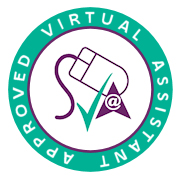One of the things I always find myself saying is the fact that as a small business owner you end up wearing a multitude of hats. One of which is the finance hat. For many small business owners this is possibly the most difficult, stressful and time consuming part of the job.
To make things even more complicated for you (although it has been put in place to make PAYE submissions more efficient) is the new RTI requirement (Real Time Information) which is the HMRC’s way of improving the way we report employee earnings.
So what is RTI?
On the 6th April 2013, HMRC changed the way nearly all UK businesses have to report PAYE. RTI doesn’t mean a change to the way you calculate the PAYE, it just means that each time you pay your employee(s) you must also submit PAYE information to HMRC, rather than what we used to do once a year at Payroll Year End. Put simply, if you pay your employees monthly, you now need to send their salary, income tax and national insurance information to HMRC on a monthly basis.
Obviously this only applies if your business actually employs people. So I’m not talking about Virtual Assistants or freelance workers who manage their own earnings.
What’s the most important information that is needed about your employees as a small business owner?
Payroll specialist, Rachel Andrews, who has been working with HMRC closely for the past two years with the RTI pilot scheme says, “If I had any last minute advice for businesses it would be to have everything you need ready to go. So employee addresses, date of birth, and the correct National Insurance (NI) number. The date of birth is more important now than previously, it has to be correct. And the correct NI number is also crucial. If any business is unsure to the number’s authenticity, they must submit an NI validation check with HMRC, and they will come back to you.”
For further information on the new changes please refer to the HMRC website: http://www.hmrc.gov.uk/payerti/getting-started/index.htm
And be aware that if you don’t conform by 2014, your business will incur penalties – which are now easier to spot since the taxman will be alerted earlier to any build up of tax arrears.
It’s crucial that as a small business owner you are aware of these changes, what you must now do, and that you start doing it immediately.
However as I always state, if this isn’t your field of expertise and it’s taking you away from areas of your business that you should be concentrating on, hire a bookkeeper who will understand this new law and ensure your business complies.

Leave a Reply